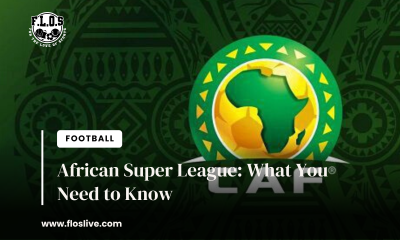
The Africa Cup of Nations (AFCON) boasts a compelling history, adorned with remarkable moments that have enthralled football enthusiasts not only across the continent but also around the world. From improbable comebacks to fierce rivalries, AFCON has borne witness to countless iconic matches that have left an indelible mark on the landscape of African football.

As the highly anticipated 34th edition of AFCON approaches, several teams are gearing up to compete for the coveted title in what remains the most prestigious football tournament on the continent. In anticipation of this grand event, we embark on a nostalgic journey, revisiting some of the most unforgettable moments in AFCON history.
Zambia’s Run to the 1994 Final
In a truly tragic turn of events, the Zambian national team faced a horrifying incident while travelling to Senegal for a World Cup qualifier. The plane carrying the team crashed into the Atlantic Ocean, resulting in the heartbreaking loss of all 25 passengers and five crew members on board. This marked a sombre day in the nation’s history, leaving an indelible imprint on the collective memory of Zambian citizens.
However, in a remarkable turnaround less than a year later, a rebuilt national team, led by captain Kalusha Bwalya, embarked on an unexpected journey in the AFCON. They triumphed over Ivory Coast and Sierra Leone in the group stages before overcoming Senegal and Mali in the knockout rounds.

Despite their commendable efforts, Zambia ultimately succumbed to defeat in the final against Nigeria. Nevertheless, the tournament is remembered for the exceptional tenacity and resilience displayed by the inspiring Zambian side, contrasting with the triumphant performance of the formidable Nigerian team under Clemens Westerhof.
Egypt’s Legendary Three-Peat
In the prestigious history of AFCON, only three teams have achieved the incredible feat of winning the title consecutively: Egypt in 1957 and 1959, Ghana in 1963 and 1965 and Cameroon in 2000 and 2002.
However, heading into the 2010 AFCON, The Pharaohs of Egypt, having emerged victorious in the previous two editions, aimed to etch their name in history as the sole three-time consecutive winners of the coveted trophy.
In a nearly flawless campaign, Egypt conceded just two goals and secured victories in all but one game within the regulation 90 minutes. Their crowning moment came in the final against Ghana, where substitute Mohamed Nagy Ismail Afash popularly referred to as ‘Gedo’ scored in the 85th-minute to secure the historic triumph, making Egypt the unprecedented three-time consecutive champions.
Gedo’s crucial goal also earned him the award as the competition’s top scorer with five goals.

The dominance displayed by Hassan Shehata’s side during that tournament will likely remain unparalleled. Players such as Mohamed Aboutrika, Wael Gomaa, Essam El Hadary, and Ahmed Hassan have become indelible figures in Egyptian folklore, and are celebrated for their exceptional contributions to their country’s success in AFCON.
South Africa’s Triumphant Debut Appearance
Fourteen years prior to Siphiwe Tshabalala’s celebrated goal, which Peter Drury fondly described as “a goal for all of Africa,” during the 2010 World Cup, the South African national team marked a significant, albeit divisive, Africa Cup of Nations (AFCON) debut on home soil.
As a founding member of the Confederation of African Football (CAF), South Africa had initially refrained from tournament participation and were disqualified from the inaugural event for refusing to field a multiracial team and subsequently banned during the apartheid era.
Nonetheless, upon the lifting of their ban, South Africa’s entry into the AFCON qualification series in 1994 was unimpressive, as it was marked by failure to qualify for the 1994 edition and losses to neighbours Zambia and Zimbabwe, coupled with a draw against Mauritius. The subsequent campaign for the 1996 edition however showed a few improvements, with Leeds United’s Phil Masinga securing victories against Mauritius and Madagascar, yet qualification remained a distant possibility.
However, a pivotal turn of events occurred when the 1996 hosts, Kenya, were stripped of the tournament by CAF due to financial irregularities, prompting Bafana Bafana’s unexpected entry as hosts.
The selection fueled diplomatic tensions between Nelson Mandela and Nigeria’s General Sani Abacha and despite being Africa’s top team and the 1994 AFCON champions, Nigeria opted not to defend their title.

The tournament featured 15 teams, placing South Africa in a challenging group alongside continental giants Egypt and Cameroon, along with Angola.
In a historic AFCON debut, the apartheid-torn nation went on to clinch the title in miraculous fashion after defeating 1994 host Tunisia in front of a crowd of 80,000 at Soccer City.
This triumph which came six months after their Rugby World Cup victory in Johannesburg, aimed for another unifying triumph with Mandela in attendance.
Unlike the predominantly white rugby team, Bafana Bafana comprised a more diverse group of players, including familiar faces like Lucas Radebe and Shaun Bartlett, embracing the beloved sport.
This triumph marked the zenith of a golden age, as subsequent years saw South Africa’s decline, with a loss to Egypt in 1998, a third-place finish in 2000, and a drought in knockout game victories since then.
Victor Ikpeba’s Disallowed Penalty
The somewhat controversial moment from the 2000 AFCON final held in Lagos which till today is referred to as the
‘Mystery of Mourad Daami.’
Mourad Daami, the official in charge of the match, made a perplexing decision during the penalty shootout of the 2000 final. Despite Nigeria’s Victor Ikpeba clearly scoring, Daami ruled that the ball had not crossed the line, a misjudgment by approximately a yard.
In a somewhat redeeming aspect, Daami was not alone in this oversight, as his assistant, stationed right beside the goal, also failed to discern the trajectory of Ikpeba’s shot after it struck the underside of the bar.

The entire Surulere crowd, including Ikpeba himself, witnessed the goal, leading to a collective sense of disbelief. The controversial decision, coupled with a miss by Nwankwo Kanu for Nigeria, paved the way for Cameroon to achieve a remarkable victory. Unfortunately, this incident overshadowed what had been an otherwise splendid final, featuring Nigeria’s impressive comeback from a two-goal deficit to draw 2-2, notably highlighted by a sublime equalizer from Jay-Jay Okocha.
In reflection, the final could have been the ideal turning point for FIFA and football’s governing body across every confederation to introduce the use of the goalline technology; and, however regrettably for Nigerians, the act paved the way for the winning spot-kick to be taken by Rigobert Song, one of the most inspirational international captains of 2000’s era.
Algeria’s Victory — 2019
Ahead of the 2019 AFCON, eventual champions, Algeria, found themselves fighting for more than just football glory, as political injustices stirred the nation leading up to the tournament.
The longstanding president, Abdelaziz Bouteflika’s bid for a fifth term in office was met with widespread discontent. Bouteflika, who had spent close to two decades as President of the North African nation, had not been seen in public for over a year and had not addressed the nation since 2012.

His decision to contest for another term was greeted with stiff opposition from the masses and it triggered tens of thousands to take to the streets in protest.
Week after week, Algerians persisted in their protests, ultimately succeeding in toppling their President just as the 2019 AFCON approached. That summer, Algeria clinched the title for the first time in 30 years, playing a significant role in uniting a previously divided nation.
While the victory was undoubtedly a spectacular sporting achievement, its enduring legacy lies in the profound political and social impact it had, serving as an inspiration and catalyst for unity among the people of Algeria.


Must See
-


Basketball
/ 3 months agoWho Will Define the Next Generation of the NBA?
We are in a new era of basketball, centered around high volume of 3-point...
By Samson Osaze -


Flos Live
/ 4 months agoFLOS’ FIVE: Unforgettable Moments from the ‘Happy Slam’ Downunder
The Australian Open, often affectionately dubbed the “Happy Slam” in the eloquent words of...
By Samson Osaze -


American Football
/ 4 months agoFLOS’ Five: Super Bowl LVIII Predictions
The 2023/24 NFL season brimmed with captivating storylines, breakout stars, struggling favourites, and unexpected...
By Samson Osaze -


Football
/ 2 years agoAfrican Super League: What You Need to Know
The President of the Confederation of African football (CAF), Dr. Patrice Motsepe announced the...






